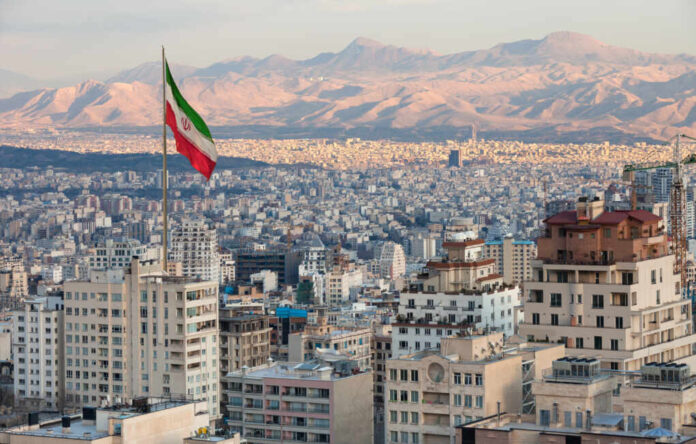
Iran’s vow to retaliate if the United Nations brings back sanctions has global powers bracing for another Middle East crisis, while Americans shake their heads at the very policies that let things unravel in the first place.
At a Glance
- Iran threatens retaliation if UN sanctions are reimposed over its nuclear program.
- European powers and the US are divided, leaving the UN Security Council deadlocked.
- The snapback sanctions process is legally disputed and undermined by global divisions.
- Renewed sanctions could destabilize the region and further harm Iran’s citizens.
Iran’s Threats Put Global Diplomacy to the Test—Again
Iran’s foreign ministry wasted no time this week, warning that any reimposition of United Nations sanctions would be met with consequences—though, as usual, the regime stopped short of telling the world what form that “response” would take. This is the latest episode in a saga that’s dragged on for decades, all while the supposed experts and international bodies have managed little more than finger-pointing and hand-wringing. The Joint Comprehensive Plan of Action (JCPOA) was meant to put a lid on Iran’s nuclear ambitions, but ever since the United States rightfully walked away in 2018, the deal has been on life support, with Iran thumbing its nose at the world by ramping up uranium enrichment. Now, with Europe finally waking up to the fact that appeasement doesn’t work, talk of bringing back sanctions is back on the table—if only the UN Security Council could agree on anything besides their lunch order.
Watch: Iran Warns of “Proportionate” Response to Potential UN Sanctions
The UN arms embargo on Iran expired in 2020, and attempts by the US to “snap back” sanctions were blocked by the same international community that’s always quick to lecture Americans on “multilateralism.” Russia and China, Iran’s favorite cheerleaders, continue to undermine any meaningful action, leaving European powers frustrated and the UN looking as toothless as ever. With Iran now openly violating enrichment limits and refusing to cooperate with international inspectors, the threat of renewed sanctions is no longer hypothetical. But with the Security Council split and the West divided, the only certainty is that nothing will get done—at least not through the usual diplomatic channels.
Israel hits Tehran, Iran vows ‘decisive response’ to US | REUTERS
Sanctions History: When Will They Learn?
Sanctions on Iran have been around longer than most career politicians, starting with the 1979 US Embassy hostage crisis and expanding over the years to cover everything from nuclear weapons to human rights abuses. The JCPOA was supposed to be the grand bargain, trading sanctions relief for supposed nuclear restraint. Predictably, Iran pocketed the concessions, ramped up its regional meddling, and went right back to its old tricks the moment the US called their bluff and reimposed sanctions in 2018. European powers tried to keep the deal alive, but without American muscle, all they managed was a lot of diplomatic posturing and little else. Now, as the world watches Iran’s nuclear program inch closer to the point of no return, the West is once again debating whether to bring back the same sanctions that never seemed to work in the first place.
The Real Cost: Who Pays for Global Incompetence?
The first casualties of renewed sanctions won’t be Iran’s hardline rulers—they’ll be ordinary Iranians, already battered by inflation and economic hardship thanks to decades of government mismanagement and international isolation. Sanctions will tighten the screws, driving up prices and fueling unrest, but history shows that it’s the regime’s grip on power that always seems to get stronger in a crisis. The Iranian leadership never misses a chance to blame America and the West for their woes, using sanctions as an excuse to crack down on dissent and rally the public around the flag. Meanwhile, regional neighbors like Israel and Saudi Arabia brace for more proxy conflicts, and global energy markets prepare for another round of price shocks.

























